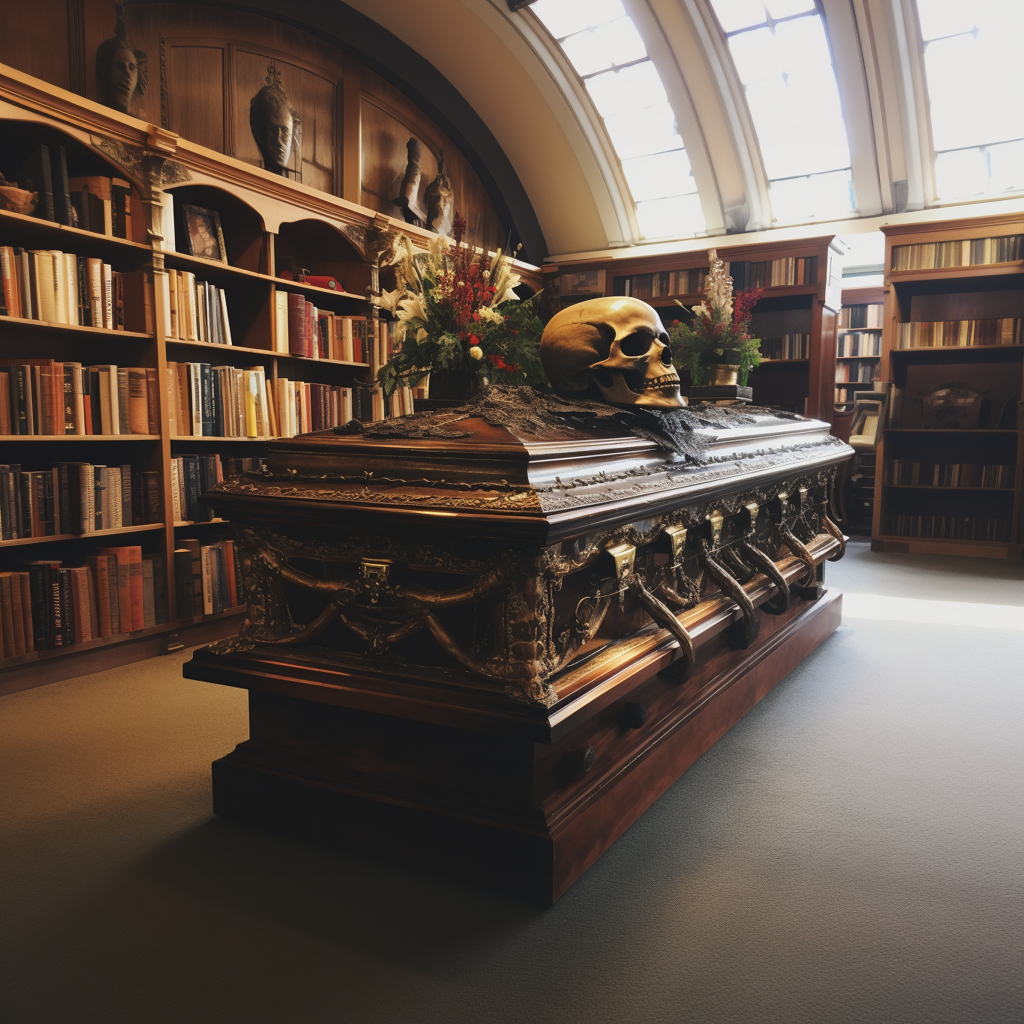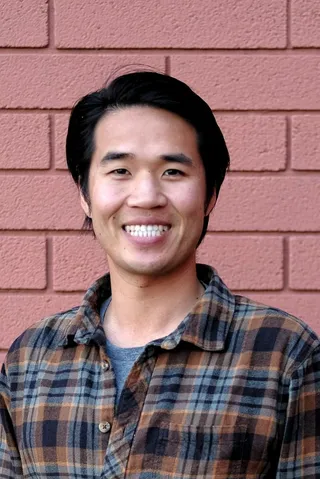In case of my death, break open these books

In case of my death, break open these books. These are the books that have left indelible marks on my thought, and made me who I am (at 32). My belief systems, my words, and my actions all stem from the worldviews and lessons imparted by these works.
An author may leave a part of themselves in their writings, but I find it beautiful that you can find traces of a reader, too. A reader, by having resonated, is imbued.
I don't mean to be presumptuous here, but I think I will be missed. Sometimes pictures and videos won't cut it. For those who survive me, I hope you will find traces of me in these works, and find comfort there.
I hope you write your own "book will," not just for me, but for your loved ones, too.
1. Harry Potter and the Order of the Phoenix by JK Rowling
I read this when I was 12. I usually spent 3 hours a day playing tennis with my team, but I didn’t go to practice for 3 days so that I could read this. I didn’t find Harry’s temper tantrums annoying; I resonated with his angst, and my (perhaps incorrect) takeaway from it was that not controlling your emotions will get you into trouble. If there is ever a book that made me so sterile-y calm and stoic, it is because of this book’s impression on me. Emotions were a liability, I spent so much effort taming mine out of that fear. I’m trying to unlearn that in my 30s.
This is also the first book I've read where the villain is hiding in plain sight, where her superpower was solely political and legal power. It made me so angry and frustrated. I think this helped me make connections to the real world, where I started to really feel emotions with regard to the political environment around me (we were ramping up our presence in Iraq at this point).
2. Zen and the Art of Motorcycle Maintenance by Robert Pirsig
I read this when I was 14. It was maybe the first “adult” book that I tried reading, and the concepts were admittedly too big for me to digest. I had to re-read the first third of the book 2-3 times to get a handle of the narrator’s literal split personality, and what he meant by Quality.
This is my earliest memory of having “woken up.” I was reading this in the summer time, in the afternoon warmth of the sunroom in my childhood home. I became more intimately aware of what motivated me as a teenager. What was intrinsic motivation to a teenager who was concerned with social motivation and the acceptance of his present and future peers? I became aware of what was “good and bad” -- and learning to challenge the duality of black and white. This was my personal "fruit from the garden of Eden", where the knowledge of good and evil is, in fact, just gray all the way down.
3. The Way of the Peaceful Warrior by Dan Millman
I remember buying this book at Powell’s with my first love, when our long distance relationship had just started, and it was our first trip to see see each other. I was 24, I had just finished my first vipassana retreat (which was life-changing), and she had recommended it to me as a “book that changes lives.” Reading this book was like seeing my own life (past, present, and future) through the main character, but from the third person. There’s nothing more that I can say except that I read this every few years just to remember the state of my mind before this book had impacted me.
4. Siddartha by Hermann Hesse
Once upon a time (when I was 23), I was a talkative person. I was on a plane and the person seated beside me was reading Siddartha. Being someone who was interested in Buddhism at the time, I had to ask about it. At the end of the flight, he said to me, “I want you to have this. When you read it, you’ll understand why.” It was a beautiful way to let something go, and I still have the same copy, hoping I could let it go in the same poetic way I acquired it.
This quote is the one I remember most from the book:
“What could I say to you that would be of value, except that perhaps you seek too much, that as a result of your seeking you cannot find.”
This summarizes the essence of this book, and its impression on me. The act of searching, as Siddartha had done, was a hindrance to him finding it. It brought me back to a journal I wrote in my senior year of college where we read the Tao Te Ching with Professor Mott Greene, where I was expressed my frustration at not being able to cut through the riddles and paradoxes. I was a scientist in a philosophy class, bringing my hard-science methods of hammer to the wrong nails. I was trying too "hard" to understand, that ultimately it was lost on me. I didn’t have the maturity to understand the Tao at 20, but this book gave me an “oh I get it now” feeling to the Tao Te Ching when I finally re-read it a few years later.
5. Walden on Wheels by Ken Ilgunas
I was 24, just finished my first Vipassana retreat and realized I can be happy with absolutely nothing but a cushion and some silence. Ken Ilgunas somehow came across my radar first through an article he published at Salon.com and I had to read his book. This is the book that led me to live in my car for five years, and led me to be more rebellious (like grow out my long hair). Ken questions everything, from the small questions of why we take on debt, to why we don’t challenge the dominant culture more. He has Kerouac’s spirit, but in clearer writing. Before I was 24 I cared about how I dressed. After Walden, it was hard for me to care about these frivolities.
The relentless toil of voyageur life made me indifferent, even contemptuous, of what now seemed to be the frivolities of civilized life. Convention, decorum, proper demeanor—these things were useless out on the water.
6. The Rock Warrior’s Way by Arno Ilgner
I wanted a book that would improve the mental aspects of my climbing but I learned more important life lessons instead. I sometimes recommend this book to my achievement-oriented friends who are not climbers, because Ilgner helped me unlearn the idea that achievement makes me valuable. So many of us are taught (from our parents) to gain a sense of self-worth and confidence from our achievements. Our ego wants us to feel good about our achievements. But there is nothing more convincing that these are “power sinks” that drain you of energy than when you can feel that energy drain from your fingertips as you’re struggling to place your next piece of protection on a climb.
Relinquishing myself from that original definition of "self-worth" was one of the most freeing things that I have ever done.
If, on the other hand, the self-worth you derive from your climbing is based on what you learn during the experience, then you are less concerned about the outcome of your efforts and able to focus more on the effort itself. What really matters when facing a challenge? What matters is learning. You want to test yourself, throw yourself into something outside your comfort zone and see what you’re capable of. Your true goal is not to conquer fifty feet of inanimate rock, but to expand your abilities through learning.
Bonus: I love this song (Allen Stone - Where You're At) that embodies the same spirit
7. Braiding Sweetgrass by Robin Wall Kimmerer
I was gifted this book by my partner at the time, when I was deep in the throes of writing my PhD thesis. We had bonded over listening to her interview with Krista Tippett’s On Being podcast. I have very pleasant memories of carving out quality time every morning to nestle with this book and daily coffee. In some ways it was a stark contrast to write my heavily Western scientific method thesis while at the same time learning about indigenous ways of knowing, but I think the contrast actually honed my thinking.
If you have ever listened to me complain about how we are so alienated from our environment, this book can make you feel what I feel. I yearn for a deep connection to my environment, to love the soil that directly feeds me, the rivers that directly nourish me, and my role in the ecosystem. I think often about chopping my own wood in a remote cabin for the rest of my life. I love this book for too many reasons to recount here.
8. The Age of Surveillance Capitalism by Susanna Zuboff
I quit and stayed off social media because of this book. I started to give my burner phone number more often, and only give away dummy emails to to corporations. If you’ve known my tin-foil-hat side, you can find me in this book. This book represents so many of my strong feelings around Big Tech and capitalism in general. Despite this being a short paragraph, I consider this one of the most important books I've ever read, because of its implications on power and knowledge (see #10). It's a big book but this podcast is fine if you just have an hour.
9. Zen in the Art of Archery by Eugene Herrigel
I feel bad that the two books I listed about Buddhism are by two different German dudes, but in Zen fashion, the way to teach is not to teach. This book is about someone else’s experience in learning archery under a Zen master for six monastic years, and sometimes I think I learn better through someone else’s experience than being directly taught. The theme of his experience is that the target is not the target. This art of archery is about turning off your analytical mind, and instead letting intuition and presence lead the way. Become one with the bow rather than control it. Let your spirit be imbued into the craft. If you’ve seen me fully absorbed in something (researching, cooking, gardening, cleaning, playing with my fountain pens, etc.) it’s because I’m embodying this spirit.
10. Undoing the Demos by Wendy Brown
This is probably the most broad (although still pretty dense) primer to my views on my economic and political views, which are also largely influenced by socialist magazines and my anthropologist-ex. Brown stands on the shoulders of Foucaultian ideologies of power and knowledge (and nicely summarizes them for you), but also ties together modern examples of the encroachment of market logic in our every day lives, and its implications for our democracy. I teeter-totter on being a radical vs being a reformist, but this book is a heavy weight toward the radicalism. Don't read this until you're ready for the red pill.
Bonus: Alan Watts - The Dream of Life (video)
This video is my emotional safety blanket. I derive a sense of purpose from this video. It is through this thought experiment that I can learn to "play." My life is ebbing and flowing between serious and chill, and this is something I listen to several times a year to remind myself that life is just a game to enjoy, a long joke between the punch lines, and that the fact that I have no control is something a godhead would be envious of.
@westleydang Newsletter
Join the newsletter to receive the latest updates in your inbox.
